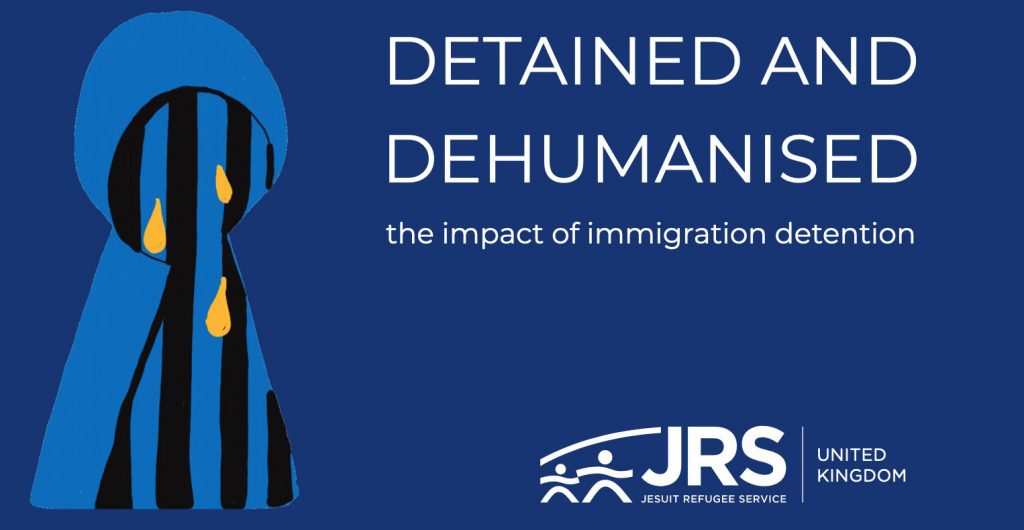A new report from the Jesuit Refugee Service has called for the abolition of the “cruel and inhumane” practice of immigration detention.

The Jesuit Refugee Service UK report ‘Detained and Dehumanised: The impact of immigration detention’ draws from the accounts of 27 forcibly displaced people supported by JRS UK, with direct experience of detention spanning the last 20 years.
It finds that the Home Office policy of immigration detention fosters a culture of death, self-harm and ongoing trauma leaving those who are detained, or threatened by the prospect of detention, dehumanised.
“It is clear…that being physically detained, as well as the looming threat of detention, irreversibly impact mental and physical wellbeing and cause life-long pain and trauma…The time for government to end this cruel and inhumane practice is long over-due.”
Sarah Teather, Director of JRS UK
JRS UK has been supporting people in immigration detention since it was formed in the 1980s. The research process for this report involved listening deeply to the experience of those who have been detained – to understand more about what happened, and to give voice to their reflections and thoughts on how it continues to affect their lives.
The testimony of those who have survived detention is at times harrowing. The violence, the fear, the trauma that never really goes away, even after release. The conclusion of JRS UK is that detention must end, and we must take action to bring this about. While we are working towards this the report calls on the government to take urgent action to implement reforms to reduce the harm that detention causes:
Recommendations
1. An end to the use of detention for the purpose of immigration control, as it is incompatible with a humane and just immigration and asylum system.
For as long as immigration detention exists, the report urges the Government at the very least take steps to limit harm by:
2. introducing a mandatory time limit of 28 days or less for all those detained under immigration powers and;
3. ensuring the decision to detain must go before a judge and be independent of the Home Office.
Of course, on one level these findings are not new; they augment a rich and tragic body of evidence of the suffering and harm caused by detention. The stories of detention told here add to a cacophony of stories bravely told by many others. And all of them together point to many more stories that remain untold.
Sarah Teather, Director of JRS UK
It is time to listen and to act.
